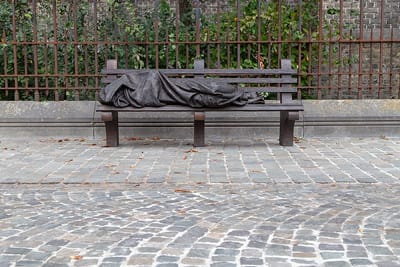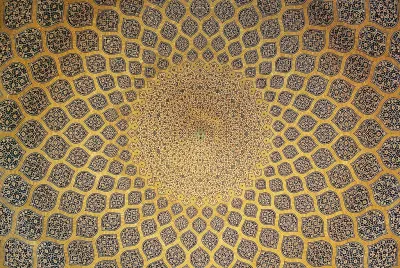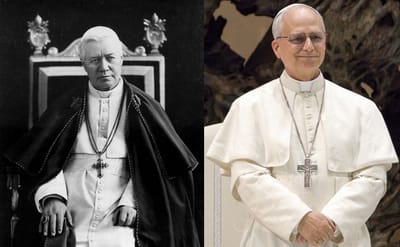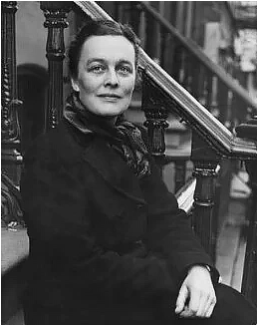For nearly 800 years, one pithy and scarce narrative has been safely preserved within the Qur’anic exegesis of al-Qurtubi. Its implications and benefits are life changing, yet sadly, it is seldomly told. The narrator, Imam al-Qurtubi[[1]], was a leading scholar during the tumultuous thirteenth century of the Common Era, and a contemporary of such notables as Mevlana Jalaluddin Rumi, Faqih al-Muqaddam, Imam al-Shadhili, Sa’di of Shiraz, and St. Thomas Aquinas, to name a few.
The story centers around the Prophet’s ﷺ four noble caliphs ardently and methodically surveying the topography of the Qur’anic verses with a single objective in mind: Which is the verse of Ultimate Hope (arjaa ayah) in the Qur’an?
Imam al-Qurtubi relates the following in his Tafsir:[[2]]
A story has been told (hukiya) that some of the companions (God be pleased with them all) gathered to deliberate over the Qur’an. Abu Bakr al-Siddiq said,
I read the Qur’an from beginning to end, and I did not observe an Ayah (verse) more hopeful and splendid than the words of [God], the Great and Transcendent: Say: ‘Each acts according to his disposition’.[[3]] The servant persists in disobedience, and the Lord intrinsically relents with Forgiveness.
Umar ibn al-Khattab then said, I read the Qur’an from beginning to end, and I did not observe an Ayah more hopeful and splendid than the words of [God], the Great and Transcendent: “Ha Mim. The revelation of the Book from God — the Mighty, the Knower. Forgiver of sin, Acceptor of Repentance, severe in retribution, Possessed of Bounty”.[[4]] God gave precedence to the forgiving of sins over the acceptance of repentance. In this is a [noble Lordly] gesture toward the believers.
‘Uthman b. ‘Affan then said, I read the Qur’an from beginning to end, and I did not observe an Ayah more splendid and hopeful than the words of [God], the Great and Transcendent: “Tell My servants that I am indeed the Forgiving, the Merciful”.[[5]]
Ali b. Abi Talib then said, I read the Qur’an from beginning to end, and I did not observe an Ayah more splendid and hopeful than the words of [God], the Great and Transcendent: Say, “O My servants who have been prodigal to the detriment of their own souls! Despair not of God’s Mercy. Truly God forgives all sins. Truly He is the Forgiving, the Merciful”.[[6]]
Then, Imam al-Qurtubi himself said, I read the Qur’an from beginning to end, and I did not observe an Ayah more splendid and hopeful than the words of [God], the Great and Transcendent: “Those who believe and who do not obscure their belief through wrongdoing, it is they who have security, and they are rightly guided”.[[7]]
You may be wondering, why wasn’t a unanimous answer given and what was the wisdom behind their diverging conclusions?
Firstly, the behavior of the companions teaches us about the importance and value of unity (wahdah). Despite the lack of outward conformity, they still maintained their semblance of unity, while respecting each other’s views. Nowhere in the story do we observe that they argued or belittled one another.
Secondly, we glean from the story that there isn’t just one manifestation of Ultimate Hope; there are many, which is indicative of the vast Mercy and Forgiveness of God. It reminds me of the famous story of the Bedouin, who casually urinated near the side of the Mosque in Madinah. The scene caused a great uproar among the companions who were present. Yet, the Prophet ﷺ gracefully handled the situation and went through the stages of de-escalation (recognize, respond, resolve), and kindly reminded the bedouin that the Mosque is a place of prayer and not a place to urinate. The bedouin was so impacted by the kindness of the Prophet ﷺ that he prayed: “O Allah, show mercy to me and Muhammad and no one else!” The Prophet smiled and said: “You have restricted something which is vast.” [[8]]
We believe the Qur’an to be a shoreless Ocean
Among educated Muslims, it is commonly known that there are many levels to comprehending the Qur’an, and it is impossible for one person, or even a collective of scholars to exhaust all of the meanings and insights concentrated within it. We believe the Qur'an to be a shoreless Ocean, with its treasures and meanings continuing to unfold to whomever God wills. In Surah Qaf, Allah describes His Book as al-Majeed (tremendous, noble, extremely generous), to which the sages joyfully proclaimed: “Whoever seeks what he’s looking for in the Qur’an will find it.” Moreover, the level of Qur’anic comprehension by the Caliphs is practically unrivaled, due to their virtue and rank as the emissaries of the Emissary of God. The theophanies of the Divine Names, al-Fattah, al-‘Aleem, al-Razzaq, al-Wahhab, and so on, were being showered upon them day and night, as can be discerned from a careful study of their life stories. Thus, their opinions sway a higher degree of authority and respect among Muslim scholars, and it should be no different when it comes to the verses of Ultimate Hope.
Securing our eternal salvation is one of the primary objectives for all Believers. While tarrying in this world, the believer is concerned over the uncertainty of their final destiny. It is precisely for this reason that the verses of Ultimate Hope are fervently sought after. If the greatest of the companions were ardently in search of it, then what about us? Simply knowing that the verses of Ultimate Hope exist will serve to solace the hearts and reassure them that the journey back to God will culminate in everlasting happiness and repose.
Whenever someone passes from this ephemeral world, their loved ones rush to pray for their forgiveness, placing their hope in Allah, and abstaining from mentioning any faults of the deceased. The biographical literature (tabaqat) we have abounds with stories of people seeing their deceased friend or loved one in a dream and asking them, what happened after you died? Hoping that they were safe in the Hands of Providence. In one narration about al-Kisa’i, it is related that someone saw him in a dream and asked him: “What did God do with you?” He replied: “God forgave me because of my recitation of the Qur’an.”
Anne Frank is stated to have said these profound words, “Where there’s hope, there’s life”. As if echoing the Ayah in Surah al-Anfal, wherein God invites the believers to taste the sweetness of true life (vitae), “O you who believe! Respond to God and the Messenger when he calls you unto that which will give you life. And know that God comes between a man and his heart, and that unto Him shall you be gathered”.[[9]] Hope and life are thus entangled in an inseparable relationship.
The Qur’an is God’s invitation to His grand banquet (ma’duba), as stated in a Prophetic narration. By responding to that Divine invitation, access is granted to partake from all of the untold number of material and spiritual blessings that are present there. Namely, the blessing of experiencing life in its fullest sense, and discovering within its fold, Ultimate Hope; a cure for one of the greatest human insecurities.
Although responding to the invitation of God and His Messenger seems like an easy task to accomplish, yet we see that many human beings constantly fail to answer the heavenly call. As Rumi is stated to have said, “Many have tasted death, yet few have tasted life”.
Scholars remind us that the Prophetic narrations are by their very nature a commentary and elucidation of the Qur’an. Hence, we find that our Prophet (peace be upon him) reflects the message of Ultimate Hope in one of his supplications: “O Allah your forgiveness is far greater than my sins. Your mercy is more hopeful to me than my actions”.
There are three Arabic words for hope or optimism that readily come to mind: Raja (رجاء), Amal (أمل pl. aamaal), and Tafaul (تفاؤل). The opposite of hope being despair (قنوط), as was quoted earlier:
Say, “O My servants who have been prodigal to the detriment of their own souls! Despair not of God’s Mercy. Truly God forgives all sins. Truly He is the Forgiving, the Merciful”.
Hope is considered an act of the heart, and the actions of the heart are the best of good deeds. Hope is like a silent prayer that emanates from the core of one’s being, and is capable of garnering eternal blessings to those who firmly believe in it. Observe the following Prophetic narration: “Rejoice! For I heard the Messenger of Allah, peace and blessings be upon him, say that Allah Almighty said: I am as my servant expects me. If he expects good, he will have it. If he expects evil, he will have it.” (Sahih Ibn Hibban 641)
Hope is how Husn al-Dhann (assuming good of Allah) and Tawakkul (complete confidence in Allah) are put into practice. The Qur’an states: “…And whosoever trusts in God, He suffices him…” (65:3). Moreover, it is through hope in Allah that worries and stress caused by overly concentrating on the outcome of one’s plans and deeds are removed. In the Aphorisms of the scholar and spiritual guide, Imam Ahmad b. ‘Ataillah of Alexandria, he advises the believers to, “Relax from managing the final outcomes (tadbir), for what God has assumed responsibility to take care of, do not you yourself worry about it.”
Within the corpus of the Qur’an and Hadith literature, there exist many statements on the virtues of Dua (making supplication). Muslims have always woven Ultimate Hope into the fabric of their daily supplications[[10]], as we simply cannot survive without having hope and anticipating a brighter future.
Here’s an excerpt of a poem that is often recited before Fajr. It was written by the spiritual guide and erudite scholar from the household of the Prophet Muhammad ﷺ, by way of his grandson al-Husayn (may Allah pleased with the folk and companions), Imam al-Habib ‘Abd Allah b. Alawi al-Haddad of Tarim, Hadramawt.
|
O Knower of everything
about us, do not cease from veiling our sins |
يا عالم السر منا لا تهتك الستر عنا |
|
Grant us well-being and
forgive us, and Be on our side wherever we may be. |
وعافنا واعف عنا وكن لنا حيث كنا |
|
O Lord! You know my
condition. I direct my hopes to You. |
يا رب يا عالم الحال إليك وجهت الآمال |
|
Grace us with your
favors and blessings, Be on our side, and grant us peace of mind |
فامنن علينا بالإقبال وكن لنا واصلح البال |
[[1]]: Imam al-Qurtubi was from Cordoba in Andalusia (Muslim Spain). After the fall of Cordoba in 1236, he relocated to Egypt and eventually settled in Cairo, and is buried there. Interestingly, the fascinating story that he shares in his Tafsir (exegesis), al-Jami’ li Ahkam al-Qur’an, is the only textual source that I’ve come across which cites it
[[2]]: Qurtubi, al-Jami’ li Ahkam al-Qur’an - wa al-Mubayyin lima Tadammanahu min al-Sunnah wa Aayi al-Furqan, ed. Dr. ‘Abd Allah b. ‘Abd al-Muhsin al-Turki (Beirut: al-Resalah, 1st Edition 1427/2006), v.11 p.165
[[3]]: Qur’an (17:84) Note: All translations are based on the Study Qur’an
[[4]]: Qur’an (40:1–3)
[[5]]: Qur’an (15:49)
[[6]]: Qur’an (39:53). This verse is similar in meaning to 12:87: “…despair not of God’s Comfort [ie do not lose hope in God’s Mercy]; truly none despairs of God’s Comfort save the disbelieving people”
[[7]]: Qur’an (6:82)
[[8]]: Narrated by Imam Bukhari, Imam Ibn Hibban and others (May God have mercy upon them)
[[9]]: Qur’an (8:24)
[[10]]: Bin Hafiz, al-Habib Allamah Umar b. Muhammad, al-Khulasah al-Madad al-Nabawi
Another oft-recited spiritual poem is the one written by the great scholar and spiritual guide, Imam al-Habib Ali b. Mufti Muhammad b. Husayn al-Habshi of Seiyun, Hadramawt. The beginning lines are:
|
My Lord, [You are the]
possessor of the greatest attributes. I am standing in the courtyard seeking
your benefaction |
رب إني يا ذا الصفات العلية قائم بالفنا أريد عطية |
|
Under the door of hope, I stand with humility, so fulfill my heart’s
desire before I die. |
تحت باب الرجا وقفت بذلي فأغثني بالقصد قبل المنية |
The following quatrain which is also authored by Imam al-Habib ‘Abd Allah b. Alawi al-Haddad, is recited in gatherings and communal supplications:
|
My ultimate hope is in Allah |
إن لي في الله آمالا طويلة |
|
I only have good
thoughts and assumptions [about God] |
وظنونا حسنهْ فيه جميلهْ |
|
I have no means to
achieve what I long for, |
ليس لي في نيل ما أرجو وسيلهْ |
|
Except for Taha, The
chosen one, the splendor of creation. |
غير طه المصطفى زين الوجود |
Allah the Exalted says in a Divine Hadith conveyed to us by the Prophet ﷺ, “My Mercy has outstripped My Wrath”, and how true are the words of God! From the sheer mercy of God, He has placed many pathways leading to hope and happiness. Through knowledge and spiritual insight, we realize that avoiding despair and clinging to hope is actually a command in the Qur’an, stemming from the Divine Love for His creation. One of those pathways is the call to prayer when it urges us to, “Hurry to the means for drawing close to your Lord” (hayya ‘ala al-salah), and “Come to the means for success” (hayya ‘ala al-falah).
After contemplating what Ultimate Hope really means, one can’t help but experience an epiphany. The realization that, in the course of searching for the verses of hope, we actually discover something far greater and more profound, that is, God is our Ultimate Hope.
This sentiment is echoed by al-Habib Umar b. Hafiz in ‘The Shimmering Light’:
|
O Lord, gather us, and
those beloved to us |
يا رب واجمعنا وأحبابا لنا |
|
In Your loftiest
Paradise, O our Ultimate Hope! |
في دارك الفردوس يارجوانا |
Combining servanthood, humility, and hope within one supplication, al-Habib ‘Abd Allah b. Husayn b. Tahir’s prayer was:
|
My Lord, we possess zero
good actions, and what we’ve performed [of actions] they’re all full of
mistakes |
يا رب ما معنا عمل وكسبنا كله زلل |
|
However, our ultimate
hope rests with You, [and that hope] restores life to our dead bones |
لكن لنا فيك أمل تحيي العظام الرامة |
We are again reminded that hope and life are truly inseparable. In his great masterpiece and spiritual commentary of the Qur’an, The Masnavi (Spiritual Couplets), Mevlana Rumi eloquently reminds his readers to cling to hope and remain optimistic:
After despair there are many hopes; after darkness there are many suns
بعد نومید بسی اومیدهاست - از پس ظلمت بسی خورشیدهاست
In closing, this next poem is often soulfully sung in the circles of remembrance. I’ve heard it attributed to Mevlana Rumi, Ibn Nahwi, and Imam Abu Bakr Shirazi. Regardless of who authored it, it’s one of the most exquisite conversations with Allah.
|
I knocked on the door of hope when people are asleep |
طرقت باب الرجا والناس قد رقدوا |
|
And began to complain to my Master about the condition I find
myself in |
وبت أشكو إلى مولاي ما أجد |
|
I said to God, O my Hope and Succor in every calamity and tribulation |
وقلت يا أملي في كل نائبة |
|
You are the One who I turn to and completely depend on to
remove my difficulties |
يا من عليه لكشف الضر أعتمد |
The root of all the aforementioned poems is deeply seeded in Revelation and Divine inspiration. Resulting in an intimate interaction and experiential knowledge of God, the Bestower of overflowing Mercy and Forgiveness; and eternally our Ultimate Hope!
And may Prayers and Peace rest upon the Messenger of God, and his folk and companions

Story of Ultimate Hope (Arabic)
وَحُكِيَ أَنَّ الصَّحَابَةَ رِضْوَانُ اللَّهِ عَلَيْهِمْ تَذَاكَرُوا الْقُرْآنَ فَقَالَ أَبُو بَكْرٍ الصِّدِّيقُ رَضِيَ اللَّهُ عَنْهُ: قَرَأَتُ الْقُرْآنَ مِنْ أَوَّلِهِ إِلَى آخِرِهِ فَلَمْ أَرَ فِيهِ آيَةً أَرْجَى وأحسن من قوله تبارك وتعالى:" قُلْ كُلٌّ يَعْمَلُ عَلى شاكِلَتِهِ" فإنه لا يشاكل بالعبد إلا العصيان ولا يشاكل بالرب إلا الغفران. وَقَالَ عُمَرُ بْنُ الْخَطَّابِ رَضِيَ اللَّهُ عَنْهُ: قَرَأَتُ الْقُرْآنَ مِنْ أَوَّلِهِ إلى آخره فلم أرى فِيهِ آيَةً أَرْجَى وَأَحْسَنَ مِنْ قَوْلِهِ تَعَالَى:" بِسْمِ اللَّهِ الرَّحْمنِ الرَّحِيمِ. حم. تَنْزِيلُ الْكِتابِ مِنَ اللَّهِ الْعَزِيزِ الْعَلِيمِ. غافِرِ الذَّنْبِ وَقابِلِ التَّوْبِ شَدِيدِ الْعِقابِ ذِي الطَّوْلِ" قَدَّمَ غُفْرَانَ الذُّنُوبِ عَلَى قَبُولِ التَّوْبَةِ، وَفِي هَذَا إِشَارَةٌ لِلْمُؤْمِنِينَ. وَقَالَ عُثْمَانُ بْنُ عَفَّانَ رَضِيَ اللَّهُ عَنْهُ: قَرَأَتُ جَمِيعَ الْقُرْآنِ مِنْ أَوَّلِهِ إِلَى آخِرِهِ فَلَمْ أَرَ آيَةً أَحْسَنَ وَأَرْجَى مِنْ قوله تَعَالَى:" نَبِّئْ عِبادِي أَنِّي أَنَا الْغَفُورُ الرَّحِيمُ". وَقَالَ عَلِيُّ بْنُ أَبِي طَالِبٍ رَضِيَ اللَّهُ عنه: قَرَأَتُ الْقُرْآنَ مِنْ أَوَّلِهِ إِلَى آخِرِهِ فَلَمْ أَرَ آيَةً أَحْسَنَ وَأَرْجَى مِنْ قَوْلِهِ تَعَالَى:" قُلْ يَا عِبادِيَ الَّذِينَ أَسْرَفُوا عَلى أَنْفُسِهِمْ لَا تَقْنَطُوا مِنْ رَحْمَةِ اللَّهِ إِنَّ اللَّهَ يَغْفِرُ الذُّنُوبَ جَمِيعاً إِنَّهُ هُوَ الْغَفُورُ الرَّحِيمُ". قُلْتُ: وَقَرَأَتُ الْقُرْآنَ مِنْ أَوَّلِهِ إِلَى آخِرِهِ فَلَمْ أَرَ آيَةً أَحْسَنَ وَأَرْجَى مِنْ قَوْلِهِ تَعَالَى:" الَّذِينَ آمَنُوا وَلَمْ يَلْبِسُوا إِيمانَهُمْ بِظُلْمٍ أُولئِكَ لَهُمُ الْأَمْنُ وَهُمْ مُهْتَدُونَ”.
كتاب تفسير القرطبي الجامع لأحكام القرآن
BIBLIOGRAPHY
al-Qurtubi, Muhammad b. Ahmad b. Abi Bakr. Tafsir al-Qurtubi: al-Jami’ li Ahkam al-Qur’an - wa al-Mubayyin lima Tadammanahu min al-Sunnah wa Aayi al-Furqan, ed. Dr. ‘Abd Allah b. ‘Abd al-Muhsin al-Turki. Beirut: al-Resalah 1st Edition 1427/2006
Bin Hafiz, al-Habib Allamah Umar b. Muhammad. al-Khulasah al-Madad al-Nabawi.
—. English translation by Professor Ghoesain Mohamed. Ashnataar Publications 1st Ed. 2011
—. al-Diya al-Lami fi Mawlid al-Nabi al-Shafi (The Shimmering Light).
The Study Quran. Editors Seyyed Hossein Nasr, Mohammed Rustom, Caner Dagli, Maria Dakake, Joseph Lumbard. 1st Edition 2015

Tariq Samady is a native of the San Francisco Bay Area with roots hailing from the ancient city of Kabul. He is a lifelong seeker, learning from and keeping the company of a wide range of teachers, and he has contributed to various educational initiatives and gatherings established for the Remembrance of God. His research and editing interests span Qur’an and Hadith commentaries, Philology, Sufism, and Persian Poetry. He is the founder of a nascent educational gathering (majlis), Circles of Light, focused on sharing sacred teachings and timeless wisdom for the benefit of the community. Tariq studied Computer Science at California State University, and has more than fifteen years experience in SaaS applications as a Product Specialist and QA Engineer.






